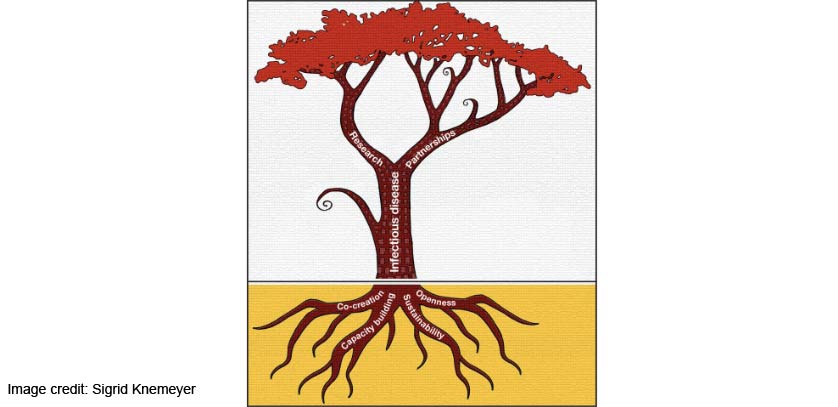The recent outbreaks of Ebola and Zika virus have highlighted how health system failures in seemingly geographically remote areas can result in disease vulnerabilities across the globe. In the absence of a stable health care infrastructure or adherence to immunization guidelines, infectious diseases have the potential to spread rapidly, turning what was initially considered a local threat into an international public health emergency.
In a commentary published in the scientific journal Cell, researchers from the Viral Hemorrhagic Fever Consortium (VHFC) call for “rooted” research collaborations to help combat future infectious disease outbreaks. Their premise for advocating for sustainable partnerships between local and international researchers stems from first hand experience establishing research consortia in West Africa.
In contrast to “parachute research” where research is conducted in isolation and without local capacity building, the authors promote sustainable collaborations built on mutual trust and openness. Drawing on insights gained during the 2013-2016 Ebola virus epidemic, the authors outline the critical role of rooted research in mitigating and preventing infectious disease outbreaks.
Read the full commentary in Cell.
Related links
Genomic surveillance elucidates Ebola virus origin and transmission during the 2014 outbreak, Science
Clinical Sequencing Uncovers Origins and Evolution of Lassa Virus, Cell

